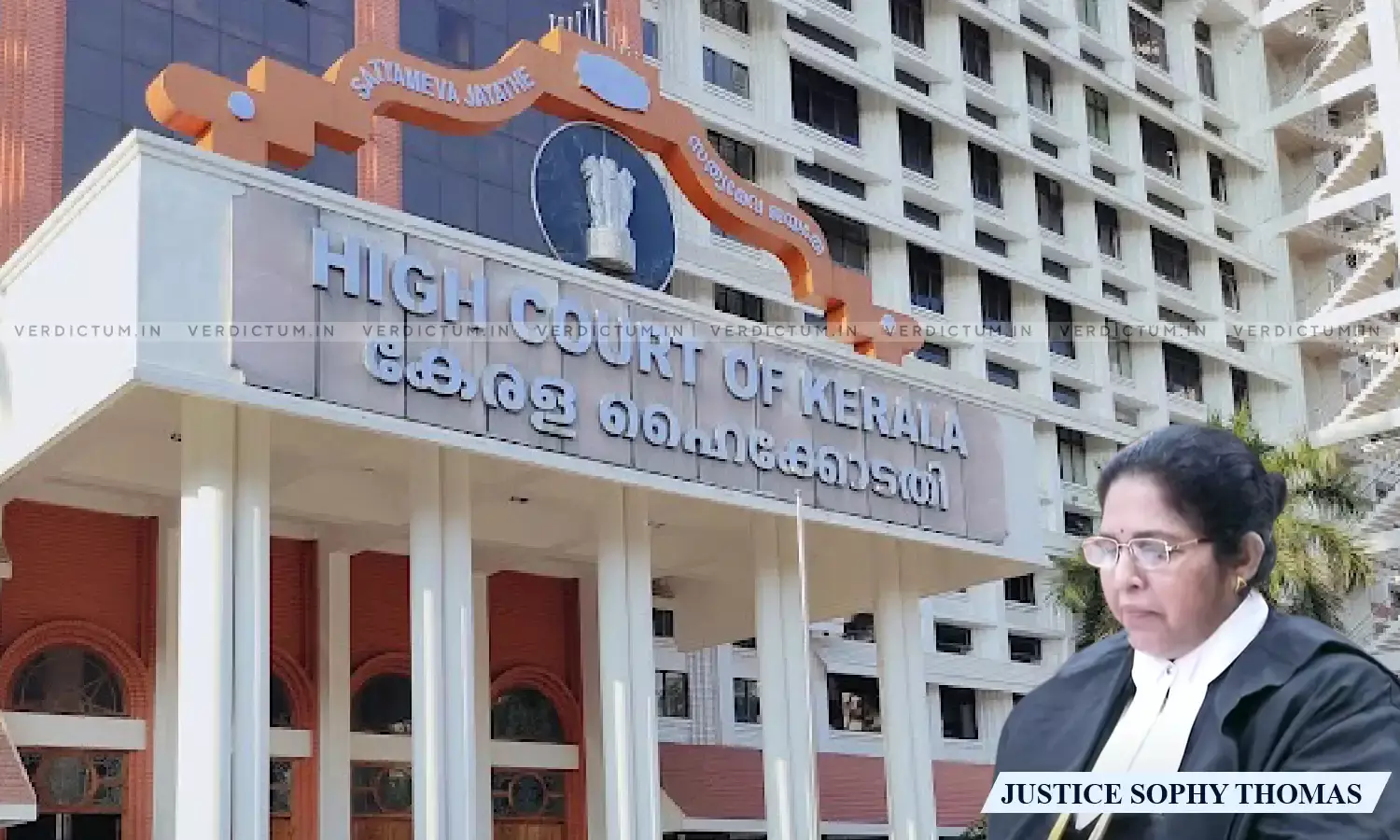Managing Partner Cannot Challenge Findings Of Trial Court In Appeal When Firm Has Not Challenged Conviction U/S 138 NI Act: Kerala HC

The Kerala High Court observed that a managing partner cannot challenge the findings of the trial court in a cheque bounce case, if the firm has not challenged the conviction and the same became final.
In this case, a partnership firm was convicted under Section 138 of the Negotiable Instruments Act, and it became final as firm did not challenge it. Then its managing partner who issued the cheque challenged the conviction.
A Single Judge Bench of Justice Sophy Thomas observed that “Here it is proved that the firm committed the offence under Section138 of the NI Act, and it was found guilty and convicted. That conviction was never challenged, and it has become final. If so, whether the vicarious liability of its managing partner can be brushed aside, in an appeal filed by him is the question here. The answer should be no”.
Advocate Joseph Kurian Vallamattam appeared for the Revision Petitioner, whereas Advocate Denizen Komath appeared for the Respondent.
The brief facts of the case were that a case was registered based on a private complaint filed by the complainant/ first respondent, a Private Limited Company, by name M/s. Babin Technologies Pvt. Ltd., for dishonor of cheques signed and issued by the revision petitioner in his capacity as the managing partner of M/s. Fortis Marketing.
The Trial court found both the accused guilty under Section 138 of the NI Act and they were convicted thereunder. Since the first accused was a partnership firm and the second accused was its managing partner, no separate sentence was awarded on the first accused.
After considering the submission, the Bench noted that a complaint alleging commission of offence under Section 138 of the NI Act can be presented through the power of attorney holder, and the power of attorney holder can depose and verify on oath before the court, in order to prove the contents of the complaint, provided he has witnessed the transaction as an agent of the payee.
The Bench found that the revision petitioner was convicted and sentenced, he being the managing partner of the first accused, whereas the cheques show that the revision petitioner signed those cheques in his capacity as the managing partner and not in his personal capacity.
The Bench explained that the amount was due to the first respondent/ complainant from the first accused-firm and the revision petitioner (second accused) had no personal liability towards the first respondent/ company so as to issue the cheques.
Moreover, the account from which the cheques were drawn belonged to the first accused-Fortis Marketing, added the Bench.
The Bench went on to observe that since the cheques were issued from the bank account of Fortis Marketing, the revision petitioner cannot be prosecuted personally under Section 138 of the NI Act, though the cheques bear his signature in his capacity as the managing partner.
So, the Bench emphasized that the liability of the revision petitioner was vicarious, co-extensive with that of the first accused, and in case the company/firm is found not guilty of the offence alleged under Section 138 of the NI Act, then the managing partner, who signed and issued the cheques in his capacity as the managing partner, cannot be convicted under Section 138 of the NI Act.
Likewise, “when there is no dispute with respect to the fact that the revision petitioner was the managing partner of the 1st accused, and he issued the cheques in his capacity as the managing partner, when the 1st accused firm is convicted, and the firm is not challenging that conviction, then the managing partner cannot escape from the liability of the firm, and he cannot have a defence more than that of the firm”, added the Bench.
Accordingly, the High Court dismissed the revision petition.
Cause Title: Shanvas P. v. Babin Technologies and Anr. [Neutral Citation: 2023/KER/73695]
Click here to read/ download the Order

